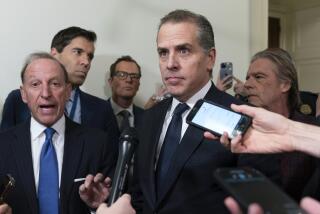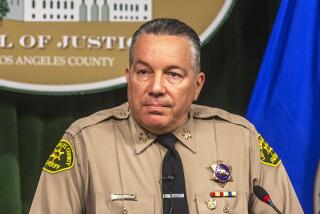Incoming Rome Prefect Agrees to Deposition
PORTLAND, Ore. — Archbishop William Levada agreed Wednesday to waive diplomatic immunity and answer questions about sexual abuse by Roman Catholic priests after he takes over as the church’s guardian on doctrine -- the Vatican post formerly held by Pope Benedict XVI.
Levada, 69, who officially steps down as archbishop of San Francisco next week, is heading to Rome to take over as prefect of the Congregation for the Doctrine of the Faith. The former Cardinal Joseph Ratzinger held the post for 24 years before he became pope in April; he appointed Levada to his old job a month later.
During a farewell Mass on Sunday in San Francisco, Levada was served with a subpoena to be deposed on Friday. But with his agreement to accept the jurisdiction of U.S. courts -- amounting to a waiver of diplomatic immunity -- Levada will now be deposed in January. He had previously refused to agree to jurisdiction and other conditions.
Lawyers for abuse victims want to question Levada as part of the bankruptcy case of the Archdiocese of Portland. Last year, Portland became the first Roman Catholic diocese in the nation to file for bankruptcy protection, citing sex abuse lawsuits seeking more than $155 million in damages.
Levada led the Portland Archdiocese from 1986 to 1995, when he became the archbishop of San Francisco.
“He now has personally signed acceptance of receipt of the subpoena and he has agreed that U.S. courts will have jurisdiction and that the subpoena will be legally enforceable,” said Eric Olson, a lawyer representing abuse victims.
Levada, who has been under intense scrutiny as the new guardian of church doctrine, also was criticized recently for approving legal arguments that contradicted church teachings on birth control in a child support lawsuit filed in 1994 by an Oregon woman against a former seminarian who was then studying to be a priest.
But the lawyer who originally handled the case for the Archdiocese of Portland said that Levada simply signed paperwork and was not aware of the potential controversy that could be raised by suggesting the woman should have practiced birth control.
“It certainly had nothing to do with the archbishop at the time, and nothing to do with church doctrine,” said Richard Kuhn, the Portland lawyer hired by the archdiocese. “It was just a defense I raised.”
More to Read
Sign up for Essential California
The most important California stories and recommendations in your inbox every morning.
You may occasionally receive promotional content from the Los Angeles Times.










